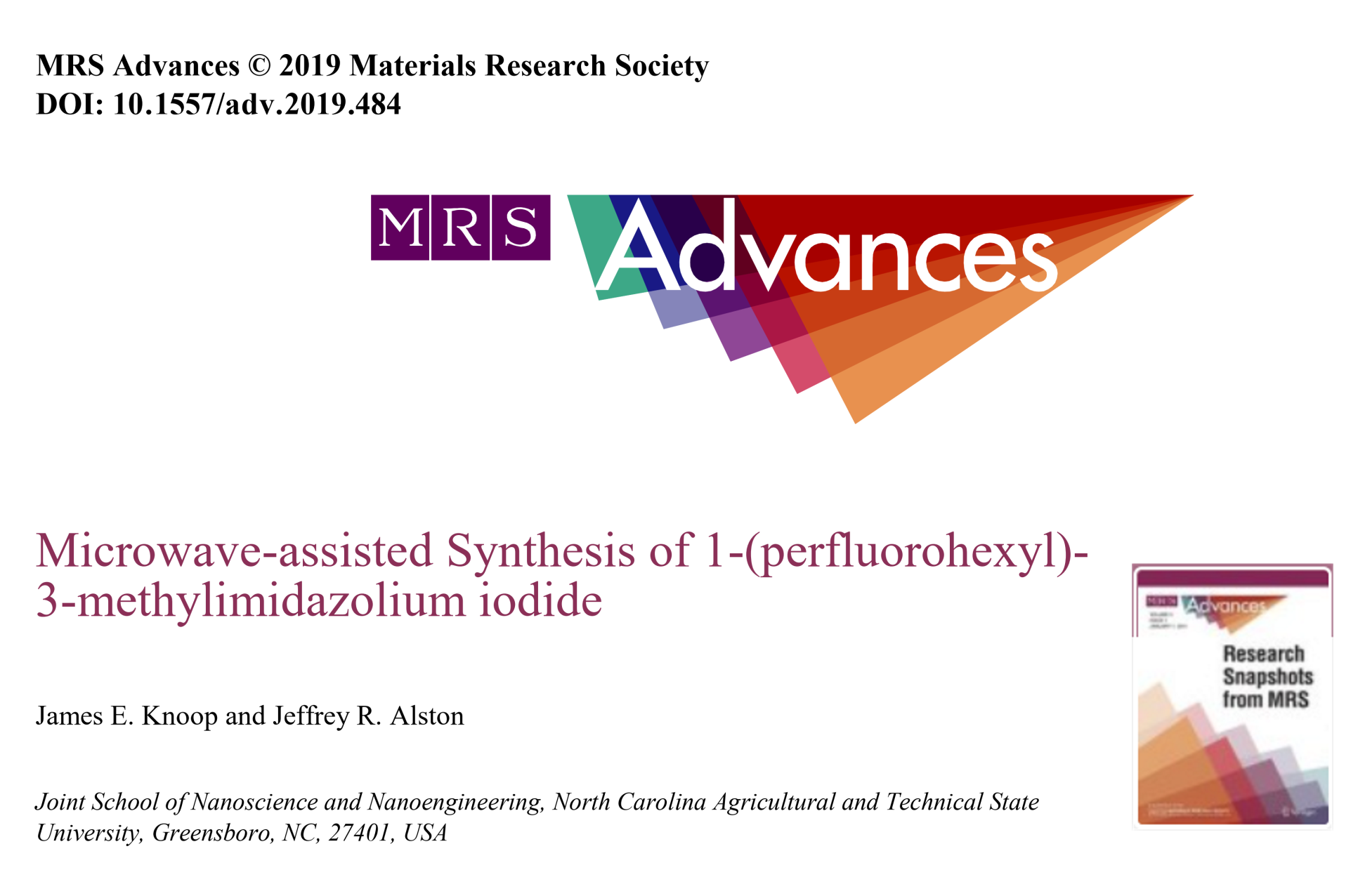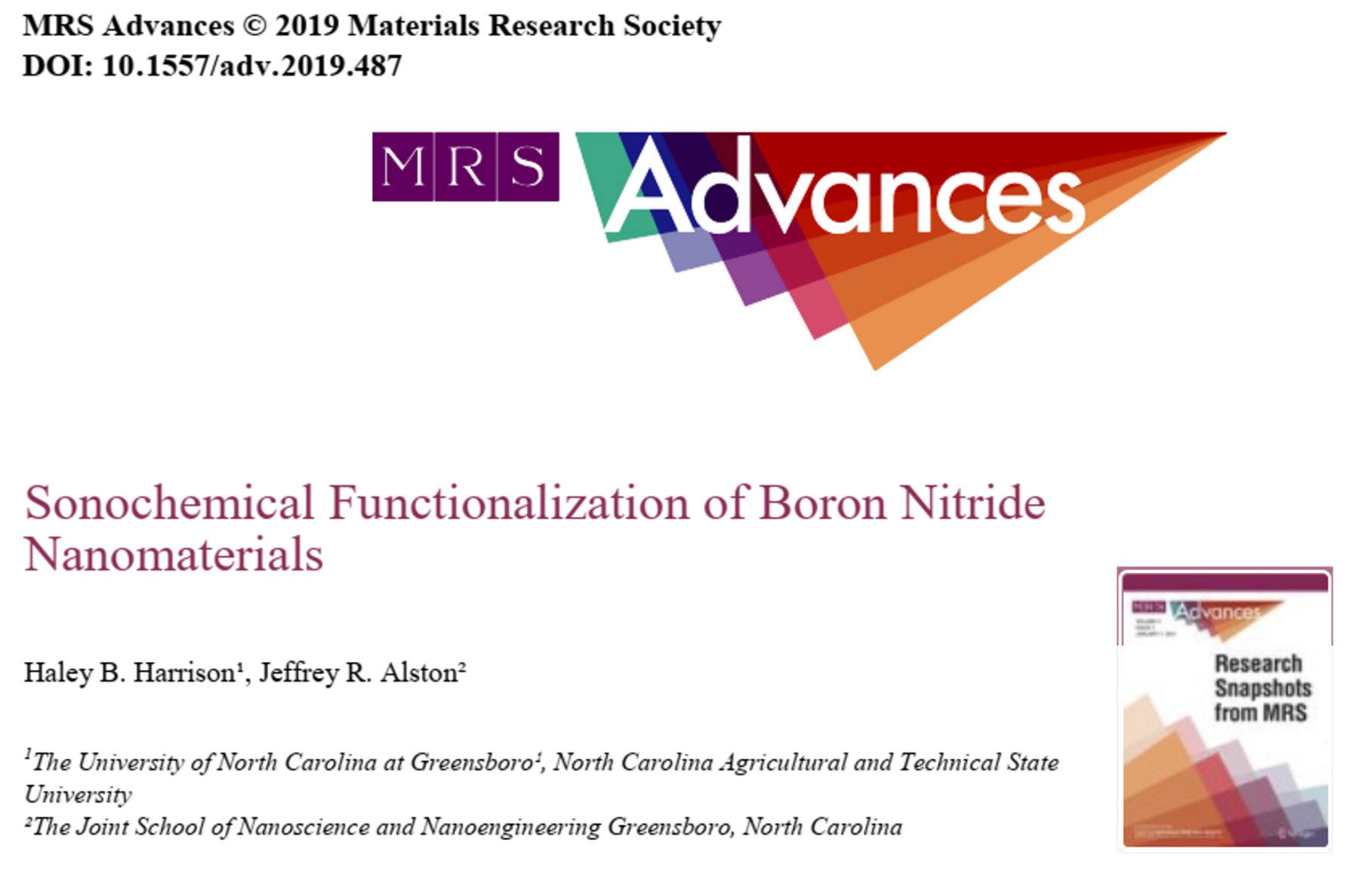
Programmed Internal Reconfigurations in a 3D-Printed Mechanical Metamaterial Enable Fluidic Control for a Vertically Stacked Valve Array
Microfluidic valves play a key role within microfluidic systems by regulating fluid flow through distinct microchannels, enabling many advanced applications in medical diagnostics, lab-on-chips, and laboratory automation. While microfluidic systems are often limited to planar structures, 3D printing enables new capabilities to generate complex designs for fluidic circuits with higher densities and integrated components...

Synthesis, Characterization, and Magnetic Properties of Lanthanide-Containing Paramagnetic Ionic Liquids: An Evan’s NMR Study
The present study focuses on the synthesis and characterization of lanthanide-containing paramagnetic ionic liquids (ILs), [CnC1Im]3[MCl3X3] (n = 4, 6, and 8; M = Gd, Dy, and Ho; X = Br and Cl), derived from 1-alkyl-3-methylimidazolium anions. These paramagnetic ILs exhibit low vapor pressure, high thermal stability, physiochemical stability...

Thermal conductivity of ethylene glycol and propylene glycol nanofluids with boron nitride nano-barbs
This study investigates the potential of composite allotrope boron nitride nanobarbs (BNNBs) as nanoparticles for enhancing the thermal conductivity of nanofluids based on mixtures of ethylene glycol and propylene glycol with water. BNNBs are allotrope composites composed of boron nitride nanotube cores with walls decorated with attached hexagonal boron nitride crystals...

Fluorographite Nanoplatelets with Covalent Grafting of Anion-Exchange Resins for Water Purification
We have developed a novel green synthetic method to covalently graft fluorographite (FGi) nanoplatelets, with quaternary ammonium polyelectrolyte chains under mild reaction conditions in water. Radical centers on the fluorographite layers react with the radical chain end on short strands of anion-exchange resins…

Synthesis and disassembly of an organometallic polymer comprising redox-active Co4S4 clusters and Janus biscarbene linkers
Here, we show for the first time that main-chain organometallic polymers (MCOPs) can be prepared from Janus N-heterocyclic carbene (NHC) linkers and polynuclear cluster nodes. The crosslinked framework Co4S4-MCOP is synthesized via ligand displacement reactions and undergoes reversible electron transfer in the solid state…

Manipulating polymer decomposition to alter burn performance in aluminium/poly(vinylidene fluoride) filaments
Filaments composed of aluminium powder and poly(vinylidene fluoride) (PVDF) were produced by melt-processing to investigate the effect of particle size and loading on decomposition behavior and burn performance. Thermal analysis revealed that nanoscale Al samples decompose PVDF in one step through interactions with the Al particle surface…

Microwave-assisted Synthesis of 1-(perfluorohexyl)-3-methylimidazolium iodide
A perfluorinated ionic liquid, 1-(perfluorohexyl)-3-methylimidazolium iodide, was synthesized via microwave reaction and compared to a non-fluorinated analog. Typically, the synthesis of fluorinated ionic liquids involves long reaction times and multiple steps. We have demonstrated a shortened synthesis and a more straightforward procedure…

Sonochemical Functionalization of Boron Nitride Nanomaterials
Boron nitride nanotubes (BNNTs) and hexagonal boron nitride platelets (h-BNs) have received considerable attention for aerospace insulation applications due to their exceptional chemical and thermal stability. Presently, making BN nanomaterials compatible with polymer and composite matrices is challenging…

Quantification of hexagonal boron nitride impurities in boron nitride nanotubes via FTIR spectroscopy
Preparation of high-quality boron nitride nanotubes (BNNTs) from commercially available stock is critical for eventual industry adoption and to perform comprehensive experimental studies of BNNTs. Separation of hexagonal boron nitride (h-BN) and BNNTs is a significant challenge…

Synthesis and properties of symmetrical N,N′-bis(alkyl)imidazolium bromotrichloroferrate(III) paramagnetic, room temperature ionic liquids with high short-term thermal stability
A series of paramagnetic ionic liquids (PILs) based on N,N′-bis(alkyl)imidazolium bromotrichloroferrate(III), [(Cn)2Im][FeCl3Br] (Im = imidazole; Cn = ethyl, butyl, hexyl, octyl, decyl, dodecyl), was prepared and compared against the more traditional [CnC1Im][FeCl3Br] (C1 = methyl) analogs.

